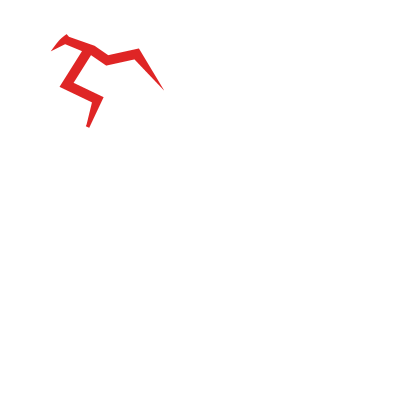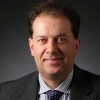Painful mistakes: Dental board’s lax oversight fails patients
he Nevada Board of Dental Examiners repeatedly has failed to revoke or suspend the licenses of Las Vegas dentists accused of injuring patients, a breakdown that state officials have known about since at least 2016, a Las Vegas Review-Journal investigation found.
More than 900 complaints have been filed since 2013, but the number of sanctions issued by the board has plunged even as grievances have increased. All but a handful of complaints were dismissed or settled with corrective actions that allowed dentists to continue practicing while undergoing additional training and partially repaying patients.
State law gives the dental board the power to revoke or suspend a license for even one instance of malpractice, professional incompetence or substandard care.
But records show the board almost never revokes or suspends licenses. Patients say the board should not allow Nevada dentists facing serious malpractice claims to continue working.
“I was really messed up,” said Las Vegas patient Ray Galaza, who suffered a stroke after dental surgery. “I was in the hospital for almost three and a half months or so.”
Some patients have been left with years of pain and mounting expenses to fix bad dental work. In interviews and records, they said they had teeth implanted into infected bone. Implants allegedly failed after surgery, or veneers were improperly positioned, causing cavities.
One patient alleges he suffered serious and debilitating injuries when an infection traveled to his brain after not being treated with antibiotics. A dentist accidentally drilled a hole through the side of a man’s tooth during a root canal and tried to conceal the mistake, court records claim.
The five-month Review-Journal investigation also found:
- The board has revoked only four licenses in the past six years — and in those cases the dentists failed to provide patient records, didn’t attend disciplinary hearings or refused to pay board-ordered fines. Around 2,000 dentists are licensed in Nevada.
- State audits repeatedly have highlighted failures in the disciplinary process, including staff dismissing potentially valid complaints and wide discrepancies among investigators in finding violations. The board has pushed back on many of the auditors’ findings.
- Nearly half the board’s members have been accused of unethical behavior by patients or state officials, but they continue to serve the agency charged with protecting patients.
- The board violated state open meeting law, failed to pass policy changes in public and filed a restraining order against a patient who spoke out about failures by dentists and the board during a public comment session.
- Patients who seek disciplinary sanction information about a dentist get limited, sometimes incomplete data from the board website, despite legal requirements to post settlement details.
None of the board members returned repeated calls seeking comment, and the staff declined to do an in-depth interview about disciplining dentists.
“I’m not discussing any dentists,” board legal counsel Melanie Bernstein Chapman said before ending a short telephone interview.
Chapman conceded that board actions have declined but said there has been a lot of controversy — audits sparked by critics like the Las Vegas Dental Association and staff changes — that has made it difficult for the board to do its job.
“There also has been a lot of upheaval and changes on the board,” she said. “There is so much I can’t tell you, (because) we’re bound by confidentiality, but it doesn’t mean everything is closed.”
Dentist faced sanctions for years
Galaza’s treatment by Gary Toogood, D.D.S., of Las Vegas is an example of dentists with repeated allegations of mistakes who retained an active license.
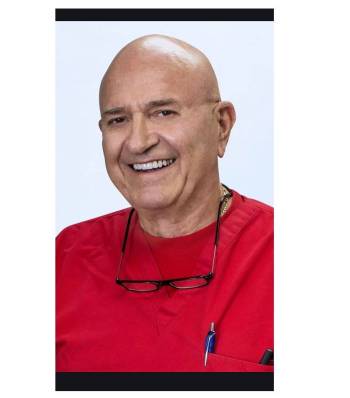
Toogood’s problems started in 1976, when the board alleged he allowed a friend to order drugs through his office resulting in the suspension of his license, a state Supreme Court ruling shows. In response to a request for the stipulation, the board wrote: “Our office has no record of a prior stipulation agreement entered into in the 1970s.”
Since then Toogood has been sued twice and received a corrective action from the board for mistakes a board investigator alleged he made on two other patients.
Toogood had removed all of Galaza’s teeth for implants in 2013 during a six-hour marathon surgery. A dental expert hired by Galaza’s lawyer alleged that Toogood failed to take a full medical history, pre-medicate Galaza to avoid infections and perform a CT scan on the then 59-year-old, and that contributed to the stroke, according to a lawsuit filed against Toogood. The suit was dismissed because it was filed five days after the state’s statute of limitations for malpractice cases.
Days after the surgery, Galaza was rushed to a hospital when he suffered a stroke that paralyzed the left part of his body and left him unable to walk or talk for nearly a year. Galaza said he is out nearly a quarter million dollars and walks with a limp.
Another Toogood patient, retired Clark County teacher Mary Harvey, went to him in 2013 and 2014 for dental implants, but she alleged the teeth quickly failed, according to a lawsuit she filed in 2015. The lawsuit was settled for an undisclosed sum, and Toogood denied the allegations in an answer to the lawsuit.
“If he’s as incompetent with other people as he was in my case, with as much misery I had to go through, he should not be practicing,” she said in a phone interview.
Despite the allegations, detailed in board documents and lawsuits, Toogood, who was first licensed in 1968, retains an active license that allows him to practice dentistry anywhere in the state until at least June 2021.
Complaints and board action... by Las Vegas Review-Journal on Scribd
Protecting patients
Toogood is one of a dozen Clark County dentists the board allows to practice without limitations despite facing lawsuits and/or board actions, a Review-Journal examination of board records and lawsuits found.
The board’s mission statement is to “protect the dental health interest of Nevadans” by ensuring “only qualified professionals are licensed to practice dentistry and dental hygiene” and “violators of the laws regulating the dental and dental hygiene professions are sanctioned as appropriate.”
But its actions and public statements tell a different story.
The board’s job is to “keep people in dentistry and be remedial in nature,” former board attorney John Hunt said, according to the minutes of a 2015 board meeting. He did not return a call and email seeking comment.
Ron Liss, founder of the American Patient Rights Association, said medical and dental boards that are made up mostly of the professionals they regulate will never properly protect patients.
“There is very, very lax regulation of the professions in general,” he said, that adding public members of boards are often tokens who are ignored by the professionals. “You don’t have to be a lawyer to be on jury, so why do you have to be a doctor or a dentist to be on a (regulatory) board?”
Galaza is angry but not surprised by the board’s failure to act. He said a board investigator told him that he saw nothing wrong with Toogood’s treatment. “Doctors will protect doctors, dentists will protect dentists, attorneys will protect attorneys and police officers will protect police officers,” Galaza said. “It’s just the way life is.”
Toogood, through his wife, Andrea, declined comment.
Board makeup
The governor appoints the 11-member board to oversee the state’s dentists and hygienists. By law, seven members are dentists, three are hygienists and one is a public member. Each member serves for three years.
Three members, including two who have been the focus of audit criticism, have terms that expire at the end of October.
Dental board statistics obtained by the Review-Journal show board actions have declined in recent years.
In 2013, nearly 17 percent of complaints resulted in board actions. In 2018, the board took public action only on 8 percent of complaints.
Since 2013, the board has revoked only four licenses and suspended four others — and two of those were suspended after the dentists agreed to the action.
Nevada is not alone in having very few revocations and suspensions. The American Association of Dental Boards surveyed states for disciplinary statistics, but its records show most states have revocation numbers similar to Nevada’s. Nearly half the states, including Nevada, didn’t respond to the survey.
Court cases without discipline
The Review-Journal investigation shows Nevada dentists who are found liable in court for mistakes in patient treatment often are not sanctioned by the dental board.
More than 50 malpractice lawsuits have been filed against dentists in Clark County since 2015. The board has taken public action against just six dentists for their alleged mistakes against the plaintiffs in those cases, a Review-Journal analysis of court and board data shows. About a dozen of those cases were settled. At least 14 more are ongoing. Four were dismissed or dropped. Attorneys in the rest of the cases did not respond to the Review-Journal’s requests for the status of the cases.
And when the board does take action, the sanctions often are not severe enough to limit a dentist’s practice and protect patients.
The board and dentists usually agree to corrective actions that typically require additional training, monitoring of the dentist for a set time period and reimbursement to patients for the dental work and the board for its investigation costs. That is in contrast to discipline that can suspend their work or revoke a license.
The Nevada board declined to provide statistics breaking out corrective actions and discipline, but 2014 and 2015 statistics cited in a legislative audit show that only 11 of 53 actions were disciplinary in nature.
It is impossible to determine what happened in the dozens of lawsuits and board actions the Review-Journal inspected because complaints and board investigations are not public.
With corrective actions, the board avoids protracted legal battles.
The dentists, while having a public action on the board’s website, often do not have their mistakes reported to the National Practitioner Data Bank, which distributes discipline records against health professionals to hospitals and clinics nationwide and may prevent a medical professional from getting a job. Despite being run by the U.S. Department of Health and Human Services, the data bank is only available to hospitals or health organizations, so patients and reporters cannot use it to research health care providers.
Patient advocate Liss said health care providers make up one of the largest lobbying groups, so they can protect their members from disclosure. “When you get into politics, they have the bucks,” he said.
Audit concerns
Nevada’s state and legislative auditors repeatedly have questioned the dental board’s investigatory process.
In June, executive branch auditors found the board’s investigative coordinator was dismissing potentially valid complaints. The coordinator is supposed to act as an intake officer to determine whether the board has jurisdiction over a complaint.
“The coordinator dismissed 44 percent of all complaints received by the Board (between 2016 and 2018) without independent review or further investigation,” auditors wrote, noting at least 19 percent of dismissed cases had allegations that might merit discipline. “Lack of board oversight may allow one individual to make or heavily influence decisions affecting the health, safety, and welfare of the public and licensees’ livelihoods without independent review.”
In a 19-page response to auditors, board president Yvonne Bethea wrote that the coordinator does not dismiss cases. “To state otherwise is incorrect and any statement to this effect in the audit report is rejected by the Board,” she wrote.
The board eliminated the coordinator’s position this year in response to auditors’ concerns.
A 2016 legislative audit — sparked by complaints from dentists in the Las Vegas Dental Association who have been critical of the board — recommended a board panel review of the investigators’ work and found the investigative files were “incomplete and disorganized.”
Auditors sampled the work of six investigators — dentists who are paid $50 an hour to review patient records and inspect dental work — between 2013 and 2015 and found disparities in disciplinary and corrective actions. One investigator found mistakes in half the cases he investigated, while others recommended discipline in zero or just a handful of cases.
Auditors recommended that board members review the investigations and the dismissal of complaints.
“Without a review process, there is an increased risk that investigations could result in licensees being treated too harshly or lightly,” wrote auditors, who noted that dental boards in other states and other professional boards in Nevada have review processes.
Board staff disputed the findings in their response to the audit, claiming there would have to be a legislative change. In 2017, the Legislature mandated a review process by 2018, but the board didn’t fully implement it until this year.
Warren Lowman, administrator of the division of internal audits in the governor’s finance office, said it’s a judgment call if the board violated the law’s time limits.
Investigator “determinations that complaints should be dismissed were not reviewed by the review panel until February 2019, coincidentally during our audit and just after we asked the board about the practice of (investigators) dismissing complaints without further review,” he wrote in an email exchange with the Review-Journal.
Long history of problems
A board investigator alleged problems with Toogood’s treatment of two patients in the past seven years, according to dental board records.
In 2012, he installed two implants in Jill Evans’ mouth. She said she could soon pull several of the implants out with her fingers. Toogood had failed to treat the underlying gum disease that resulted in her body rejecting the implants, investigators allege in board records.
Evans, 57, said she had all her implants taken out, except one that perforated her sinus and still causes her pain.
“It was a nightmare,”said Evans, a purchasing manager for a molding company.
In her case, the dental board cited Toogood for failing to “diagnose and resolve the patient’s periodontal condition prior to placing implants,” records show.
A year later, Mark Huseby’s teeth were breaking, and his crowns were coming off, so he scheduled an appointment at a dental office near his home. He was assigned to Toogood, who recommended implants for several front teeth.
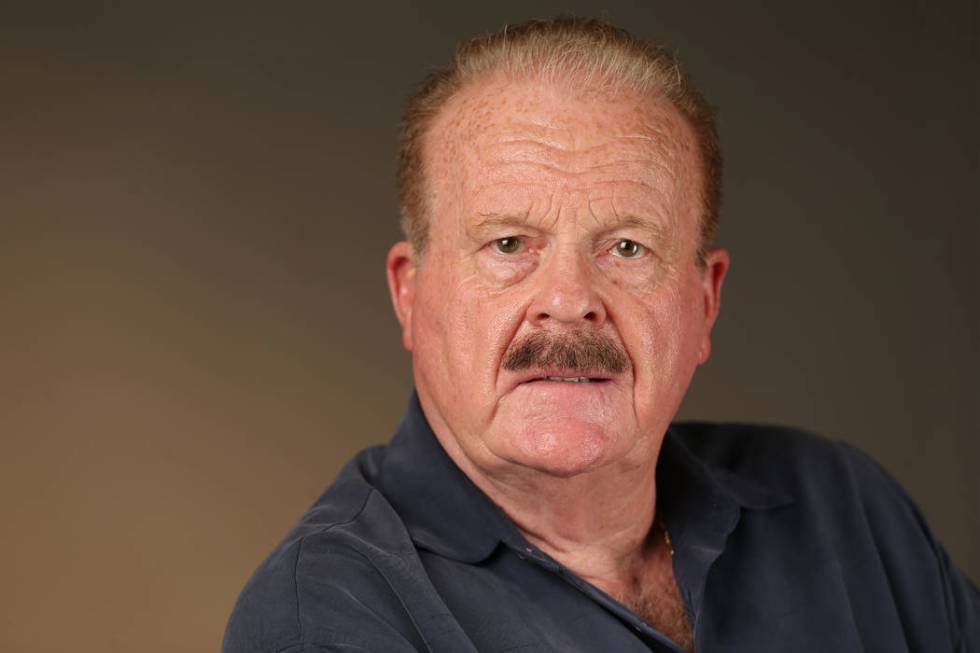
Huseby, 70, said the implants broke off soon after he paid Toogood about $8,000 for the treatment. Huseby claims he still has a metal post Toogood installed in his mouth that rubs against his denture bridge, causing pain.
Huseby filed a complaint. A board investigator found evidence that Toogood failed to diagnose Huseby’s teeth clenching, which led to the failure of his natural teeth and three implants Toogood used to replace his front teeth, the board’s filing shows.
Huseby said he borrowed the money for implants from his family and can’t afford new treatment, so he’s stuck with daily pain when he eats and the embarrassment of a partial denture that was designed to be temporary.
“It hurts every time I chew something,” he said in an interview. “It’s a big problem.”
In Huseby’s and Evans’ cases, the dental board issued a corrective action that required Toogood to undergo monitoring of his work for six months, get additional education and pay the board nearly $6,000 to reimburse the board for its investigative work. Toogood also had to repay Evans $4,898 and Huseby $3,053.
Both patients said the board should require Toogood to refund all the money they paid for their failed implants and stop him from practicing dentistry.
“I would think, fool me once, OK, but fool me twice, you should have your dental license revoked,” Evans said in a phone interview.
The Review-Journal obtained a database of 52 dental malpractice lawsuits filed against dentists from 2015 to 2019, reviewed the cases and matched them against public dental board actions. The Review-Journal identified dentists who had multiple lawsuits and board actions. We interviewed more than a dozen patients of three dentists who had repeated lawsuits and/or actions before the board.
The Review-Journal gathered medical records and executive branch and legislative audits, and we reviewed board video and audio of public state meetings. We contacted attorneys who filed malpractice cases and reached out to the dentists and their attorneys. None would agree to interviews.
The Review-Journal also filed a dozen public records requests with the dental board, the Nevada attorney general’s office, the Nevada Commission on Ethics and state auditors. We also obtained key documents from confidential sources.
We attempted to interview Gov. Steve Sisolak, Attorney General Aaron Ford and dental board members. The board’s executive director refused an interview but answered some factual questions via email. The board counsel did a brief phone interview but ended it by saying we could not quote her, despite our refusal to agree to an off-the-record exchange.
The investigation took five months to complete.
Your support makes watchdog reporting like this possible. Please subscribe here.
More malpractice claims
The board acted in Evans’ and Huseby’s cases but did not act in the case of another patient who had problems, records show.
Teacher Mary Harvey used Toogood for implants. In a lawsuit she alleged, one pierced her sinus cavity, records show. Toogood denied all the allegations in a response to the lawsuit.
Harvey, 82, and her attorney, P. Sterling Kerr, confirmed there was a confidential settlement of the case in 2017.
Nevada Administrative Code requires dentists to notify the board of malpractice settlements within 30 days, so patients can find the information when researching their dentists.
Two years after the 2017 settlement, the board’s website does not have a notation that Toogood settled Harvey’s case.
The Review-Journal found at least two other cases with other dentists since 2015 where court records showed, or attorneys confirmed, settlements against dentists. But the dental board records contained no malpractice notation for the settled cases.
Harvey never filed a complaint with the board against Toogood, and there was no public board action in the case. Because board staff declined to discuss dentists, it is not clear whether they even know about the case and settlement.
The board declined to provide the complaints and any responses Toogood made to the agency.
Strict Nevada statute
The state has a strict time limit to file medical malpractice cases. Voters passed the limit in 2004 in the hope of attracting more doctors. Galaza’s lawsuit was dismissed because it was filed five days after the one-year limit. Other patients the Review-Journal interviewed lost their day in court because of the law.
Plaintiffs in personal injury and other types of cases have two to four years to file a case.
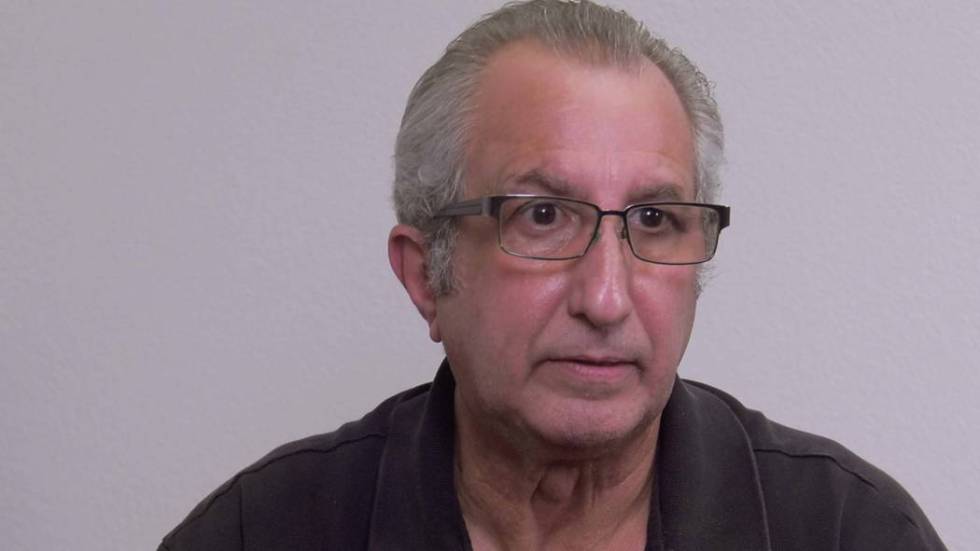
Galaza’s medical records, which he provided to the Review-Journal, note the dental procedure but do not draw a causal relationship to the stroke. They note he is a smoker, and Galaza conceded smoking about a third of a pack of cigarettes a day.
Dr. Samir Saxena, Galaza’s attending physician, declined to comment on Galaza’s treatment, citing patient confidentiality, but said it is difficult to prove exactly what causes a stroke.
Galaza said the dental board investigator, Bradley Roberts, who declined filing charges against Toogood, never examined him or the work Toogood did before determining he saw nothing wrong with the care. Galaza, frustrated by Roberts’ response, ended the call with the investigator.
Roberts did not return calls from the Review-Journal requesting comment.
Galaza said he had no health insurance and spent $30,000 for Toogood’s implants, an additional $40,000 for new implants and more than $100,000 on medical bills from his stroke. He had to sell three classic cars to help pay the bills.
“There went our savings,” he said. “There went retirement. There went everything.”
Contact Arthur Kane at akane@reviewjournal.com. Follow @ArthurMKane on Twitter. Kane is a member of the Review-Journal’s investigative team, focusing on reporting that holds leaders and agencies accountable and exposes wrongdoing. Support our journalism.
Patients reveal the impact of failed dental work
Injured patients claim botched dental work. Why didn't the board revoke licenses?
VIDEO:Patients reveal the impact of failed dental work
Dental patient: "There was nothing but pain and suffering."
Dental board benefiting itself, not patients, records show
VIDEO:Woman claims former dental board president tried to overcharge her
Longtime dental feud sparks state investigation
This patient complained. The dental board filed a restraining order against him.
RAW VIDEO:Vegas man complains to board, he's told to leave
VIDEO:One man's quest to be heard
VIDEO:How to check your dentist's background
VIDEO:How to file a complaint against your dentist
as Vegas dentist Troy J. Trobough has been the subject of Nevada Board of Dental Examiners actions for alleged problems with three patients - and has been sued twice, records show.
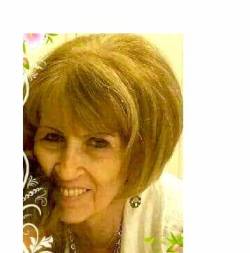
In 2015, Trobough couldn’t complete a root canal on Jo Ann Cappellano and just put a crown on the tooth without fixing the underlying issue, according to a board investigator finding cited in public records. The investigator also found Trobough failed to secure a bridge in her mouth, which dislodged.
Cappellano, 70, who recently moved from Nevada to Georgia to be with family, said she still has pain because the bridge does not fit. She is not happy the board allowed Trobough to keep his license.
“After I closed and finished with my (complaint), I though they were going to take his license away,” she said. “I couldn’t believe he was still working. I don’t understand that.”
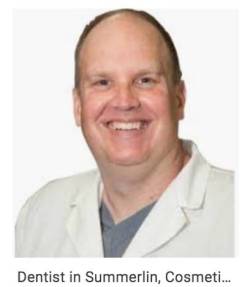
Trobough is one of at least a dozen Clark County dentists who have had repeated actions or lawsuits but continue to practice with active licenses, a Review-Journal investigation found. Through interviews with more than a dozen patients, the Review-Journal found allegations that mistakes by the dentists caused patients pain and cost some of them thousands of dollars to repair the damage.
Board staff repeatedly have refused to discuss specific dentists or their investigative process. Trobough and his attorney did not return repeated calls seeking comment.
Trobough also did not fix cavities before cementing veneers on Patti Sue Kramer’s teeth, and the veneers were improperly positioned, causing other cavities to occur, a board investigator alleged in a corrective action stipulation.
The dentist, who has been licensed in Nevada since 1995 after graduating from a private school in California, also cemented poorly fitting crowns on Maurice Deveau’s mouth and improperly placed a bridge, according to a board investigator. Deveau could not be reached for comment.
In 2016, the board put Trobough on nine months’ practice monitoring and required continuing education classes.
He had to pay the dental board nearly $9,000 for the investigation.
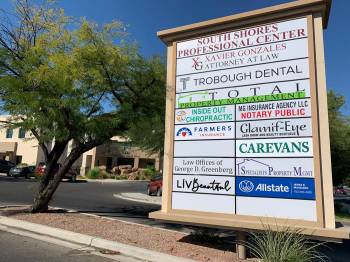
The three patients split about $17,000 — which they said was far less than they paid.
Kramer, 65, said allowing Trobough to partly reimburse patients for work is not enough.
“I could feel he was drilling too far and too deep into the tooth,” she claims. “What amount of money is going pay you back for the loss of four or five teeth?”
Malpractice claims
Trobough also has been sued twice since 2017.
Stephen Konowalow, 71, suffered serious and debilitating injuries after Trobough did not treat him with antibiotics and an infection traveled to his brain, a lawsuit filed in January alleges. The case is ongoing. Konowalow declined to discuss his injury, but the lawsuit said he suffered great physical and mental pain, loss of enjoyment of life and has been unable to hold a job because of the injuries suffered from Trobough’s care.
Las Vegas resident James Snaadt, 74, found Trobough on an online referral website in 2013. Snaadt said Trobough told him he needed implants to improve his quality of life.
After Snaadt spent about $20,000 to extract his teeth and put in about a dozen implants, most have fallen out or had to be removed, according to a lawsuit he filed.
“I go to a guy and trust him, and this is what I get,” he said in a phone interview. “I’m stuck with a mouth full of crap that doesn’t do anything.”
He said he still has pain and the dental work is rubbing against an exposed nerve.
Snaadt’s lawsuit was dismissed because it wasn’t filed within a year of discovering the alleged malpractice, as state law requires. He said he hasn’t gone to the dental board yet but is considering it.
Trobough’s attorneys denied the allegations in court filings for both cases.
The Review-Journal obtained a database of 52 dental malpractice lawsuits filed against dentists from 2015 to 2019, reviewed the cases and matched them against public dental board actions. The Review-Journal identified dentists who had multiple lawsuits and board actions. We interviewed more than a dozen patients of three dentists who had repeated lawsuits and/or actions before the board.
The Review-Journal gathered medical records and executive branch and legislative audits, and we reviewed board video and audio of public state meetings. We contacted attorneys who filed malpractice cases and reached out to the dentists and their attorneys. None would agree to interviews.
The Review-Journal also filed a dozen public records requests with the dental board, the Nevada attorney general’s office, the Nevada Commission on Ethics and state auditors. We also obtained key documents from confidential sources.
We attempted to interview Gov. Steve Sisolak, Attorney General Aaron Ford and dental board members. The board’s executive director refused an interview but answered some factual questions via email. The board counsel did a brief phone interview but ended it by saying we could not quote her, despite our refusal to agree to an off-the-record exchange.
The investigation took five months to complete.
Your support makes watchdog reporting like this possible. Please subscribe here.
Implant failures
Las Vegas dentist Adam Lousig-nont had similar allegations against him. (On some websites his name is spelled Lousignont.)
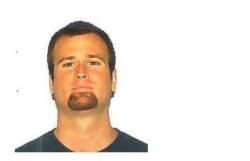
In 2013, a board investigator found evidence supporting that Lousig-nont made mistakes in treating four patients. He placed teeth into infected bone, failed to address root canal infections, failed to remove bony growths to make sure dentures fit properly, placed implants where there was insufficient bone and placed a crown on a tooth without fixing the cavity, board records show.
A year later, an investigator alleged the board found problems with Lousig-nont’s fabrication of dentures for a fifth patient.
To resolve the complaints, he was put on probation for two years and was required to complete 106 additional hours of education and reimburse patients more than $33,000 in total fees. He was also required to reimburse the board at least $21,000 for investigation and monitoring.
Despite that history, the board hasn’t taken any action in the case of Lousig-nont’s treatment of Norik Akopyan.
Lousig-nont accidentally drilled a hole through the side of Akopyan’s tooth during a root canal and tried to conceal the mistake, according to allegations in a lawsuit filed in 2015. The treatments caused severe headaches, eye watering and food to collect in the area, the lawsuit claimed.
Akopyan’s attorney, Andrew Wasielewski, confirmed a settlement in the case but said his client couldn’t speak about it because of a nondisclosure provision. He said a complaint was filed with the board, but the board dismissed the complaint with no action taken against the Lousig-nont.
Board records also show Lousig-nont, who has been licensed since 2008, settled a claim filed by a 44-year-old woman claiming he extracted the wrong tooth.
Lousig-nont and his attorney did not respond to repeated requests for comment, but he continues to practice dentistry in Las Vegas with an active license. Lousig-nont disputed the claims in court records. The board declined to provide the complaints and answers to the complaints resulting in the corrective actions against both dentists.
Retired Ford dealership technician Carl Tiveron, the patient who alleged Lousig-nont failed to remove his bony growths, said the dentures Lousig-nont made are still rubbing against a bone in his mouth.
“There was nothing but pain and suffering,” the 78-year-old said in a phone interview from Pahrump. “He should have been run out of town then. I don’t see how, with that many lawsuits and malpractice (settlements), how he is still able to practice.”
Contact Arthur Kane at akane@reviewjournal.com. Follow @ArthurMKane on Twitter. Kane is a member of the Review-Journal’s investigative team, focusing on reporting that holds leaders and agencies accountable and exposes wrongdoing. Support our journalism.
evada’s dental board members have faced allegations of conflicts of interest, illegally required dentists to contribute to nonprofits with ties to board members and failed to investigate complaints against the board’s own president, a Las Vegas Review-Journal investigation found.
The allegations, detailed in audits, public records and complaints, so outraged Gov. Steve Sisolak that he directed the Nevada Board of Dental Examiners, whose members he appoints, to undergo training by the Nevada Commission on Ethics.
“I don’t know where to begin, but I’m not happy the way this turned out. I’m not at all happy the way it turned out,” Sisolak told dental board general counsel Melanie Bernstein Chapman at a June meeting about the agency’s recent audit.
Sisolak said the findings were the most egregious he has seen in 20 years of public service. His staff declined interview requests about the board.
The board has maintained that staff and board members have done nothing wrong and that the controversy has been fostered by a small group of dentists who want to avoid regulation. The governor-appointed, 11-person board is made up of seven dentists, three hygienists and a citizen with no ties to dental practice.
In a brief phone interview, Chapman declined to discuss the ethics charges or the board’s critics.
“As much as they have violated our rights and been defamatory against us, I’m not going to do that to them,” she said. “They have confidentiality, even when they are telling stories.”
Conflicts over contributions
Audits released between 2016 and 2019 lay out a number of potential ethics violations.
The audits do not name the board members involved in the conflicts, but the Review-Journal has been able to identify several of the individuals alleged to have conflicts through board minutes, nonprofit filings and other public records.
In 2016, legislative auditors spotted a problem with the board requiring four Las Vegas dentists to donate $140,000 to nonprofits for allowing unlicensed or unqualified staff complete dental work. Auditors said requiring the donations was illegal under state law.
“Legislative counsel concluded the Board is not authorized to provide for a charitable contribution by the licensee as a condition of a stipulation,” auditors wrote.
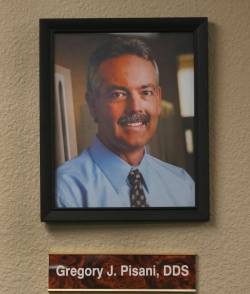
The audit didn’t mention that two of the board members who approved the agreement had close ties to Adopt-A-Vet, a nonprofit that provides dental care to indigent military veterans. The nonprofit received $70,000 from the donations agreed to in the stipulations, records show. The board members with ties to the group did not recuse themselves from the votes, records show.
Dental board member Gregory J. Pisani has been president of Northern Nevada Dental Health Programs, which provides dental care to uninsured people, since at least 2014, nonprofit tax records show. The NNDHP website says the nonprofit merged with Adopt-A-Vet the year before the board approved the donations. Pisani voted for the stipulation against the four dentists in 2014 and 2015 that included the donations to Adopt-A-Vet, board minutes show.
Board member Jason L. Champagne’s father started working with NNDHP in 1985, according to a news story and the board’s website. Champagne abstained on one vote and wasn’t present when two other stipulations were before the board. But he voted for one of the donations in 2015, board minutes show.
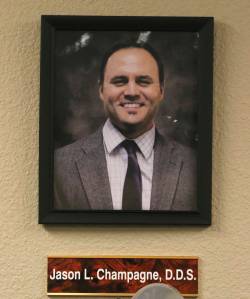
Auditors do not note conflict
Legislative auditor Daniel L. Crossman said his staff didn’t know about the conflict and auditors had limited time to look into the issue, so they stopped before finding any possible conflicts.
Debra Shaffer-Kugel, the board’s executive director, defended the contributions in 2016 in a written response to the audit: “Charitable contributions are a tool to provide real benefits to the community for services that might otherwise not be done and they allow the licensee to make reparation to the community for wrongs done.”
In an email to the Review-Journal, Shaffer-Kugel said Adopt-a-Vet hadn’t merged with NNDHP at the time of the donations, despite the information on the nonprofit’s website. She also provided checks made out to Adopt-A-Vet in care of another nonprofit and disputed a close family relationship between Champagne and NNDHP board members.
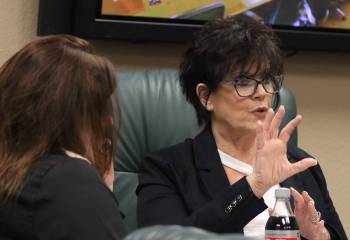
But Las Vegas dentist Ilya Benjamin, one of the dentists required to make a donation after he said he unknowingly hired an unlicensed hygienist, provided a statement in response to a Review-Journal inquiry.
“I understand that it was not ‘social justice’ when the Board forced me to donate $40,000 to a charity, but (an) intentional and unethical act to serve their interest,” Benjamin’s statement said.
The three other dentists who made the donations did not return calls seeking comment.
The Review-Journal obtained a database of 52 dental malpractice lawsuits filed against dentists from 2015 to 2019, reviewed the cases and matched them against public dental board actions. The Review-Journal identified dentists who had multiple lawsuits and board actions. We interviewed more than a dozen patients of three dentists who had repeated lawsuits and/or actions before the board.
The Review-Journal gathered medical records and executive branch and legislative audits, and we reviewed board video and audio of public state meetings. We contacted attorneys who filed malpractice cases and reached out to the dentists and their attorneys. None would agree to interviews.
The Review-Journal also filed a dozen public records requests with the dental board, the Nevada attorney general’s office, the Nevada Commission on Ethics and state auditors. We also obtained key documents from confidential sources.
We attempted to interview Gov. Steve Sisolak, Attorney General Aaron Ford and dental board members. The board’s executive director refused an interview but answered some factual questions via email. The board counsel did a brief phone interview but ended it by saying we could not quote her, despite our refusal to agree to an off-the-record exchange.
The investigation took five months to complete.
Your support makes watchdog reporting like this possible. Please subscribe here.
Ethics actions against board
The Nevada Commission on Ethics took the allegations of conflict of interest seriously, according to since-retracted confidential caution letters obtained by the Review-Journal.
Cheryl Lau, who chairs the ethics board, wrote to Pisani and Champagne that the two-year statute of limitations had expired, so the commission lacked the jurisdiction to investigate the complaints.
“Nevertheless, the Commission determines it is appropriate to issue a confidential letter of caution to the Subject regarding prohibited conduct associated with the use of his official position to secure an unwarranted advantage for himself or any person to whom he has a commitment in a private capacity, including a nonprofit organization,” she wrote in January.
Ethics complaints against d... by Las Vegas Review-Journal on Scribd
Ethics officials retracted both letters six months later, specifically because the issue was outside the two-year statute of limitations.
Champagne and Pisani, who both live in Northern Nevada, did not return calls seeking comment, but Chapman, the board’s general counsel, warned that writing about the ethics issue could get the Review-Journal sued.
“There are no findings without an (ethics commission) investigation,” she said. “You are wrong if you publicize that and you might have a problem. That would be an incorrect statement and it would perhaps be defamatory.”
Yvonne M. Nevarez-Goodson, executive director of the ethics commission, declined comment. An NNDHP official directed questions to the dental board.
Accused of overcharging
Former board president Byron Blasco, who still serves on the board, was the focus of a complaint that he tried to overcharge a patient. The patient, Alexandrina Barin, has connections to dentists critical of the board.
In 2017, Barin went to see Blasco about pain in her molars, and he suggested nearly $16,000 in dental work and wanted to fix cavities that other dentists said she didn’t have, according to dental records Barin provided.
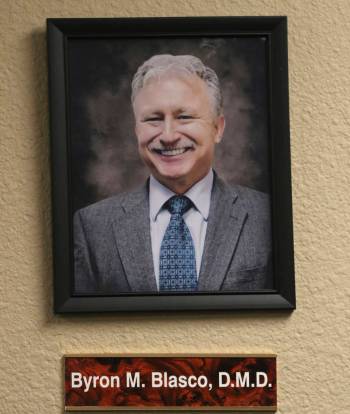
“I think he was fabricating work and trying to overcharge me,” she told the Review-Journal.
Barin, 46, said she went to four other dentists to get second opinions. Two of them also moonlight for the dental board as investigators of malpractice allegations.
Dentists Bradley Strong and J. Stephen Sill did not find any decay in the four teeth identified by Blasco, dental records show. They also found Blasco missed decay on a different tooth, according to Barin’s complaint. Blasco only gave her an estimate and never did any work.
Strong and Sill, who both declined comment, each provided Barin an estimate of about $4,000 for the dental work she needed — or a quarter of what Blasco wanted to charge her, dental records filed with the board complaint show.
“I think it’s all corrupt,” she told the Review-Journal. “They’re all friends and help themselves out.”
Close family ties
Blasco’s attorney J. Charles Coons claims Barin’s requests for treatment were a setup.
“Ms. Barin’s intent was to deceive Dr. Blasco, as well as other dentists associated with the Board of Examiners, in the hopes to slander or libel Dr. Blasco’s professional reputation and dental work product,” Coons wrote to the Nevada attorney general’s office in response to Barin’s complaint.
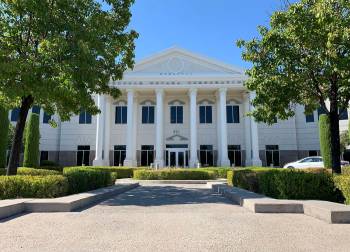
In response to Review-Journal questions, Barin said she wasn’t trying to set up Blasco and the board and had no connection to the Las Vegas Dental Association, a professional association of metro dentists who have repeatedly complained to legislators and the governor about what they allege is unethical dental board conduct.
Their complaints sparked the two audits, confidential letters by the Ethics Commission and criticism from public officials like Sisolak.
When confronted with the fact that her brother, Adrian Ruiz, is executive director of the LVDA, Barin maintained she was only acting as an aggrieved patient and was not put up by the LVDA to seek treatment from Blasco and other dentists associated with the board.
The attorney general’s office, which looked into the complaint, determined there was no violation, despite Barin submitting records of Blasco’s questionable treatment plan, records show. The AG’s office declined comment and a request for records, saying the review is “ongoing.”
The dental board rejected a public records request seeking the number of complaints filed against board members — even without naming which members had complaints. But board staff conceded the agency took no public actions against any of its board members in the past four years.
Blasco did not return calls and emails seeking comment.
Possible unethical actions
Executive branch auditors criticized other dental board members for possible unethical actions this year.
“Three Board members may have violated Ethics Law during calendar years 2015 through 2019 by participating in Board matters or other activities that could be interpreted as unethical according to statute,” auditors wrote. “These three Board members may not have separated private and public interests as required by NRS, which reduces transparency in government and is contrary to the Board’s responsibility to carry out its duties for the protection and benefit of the public.”
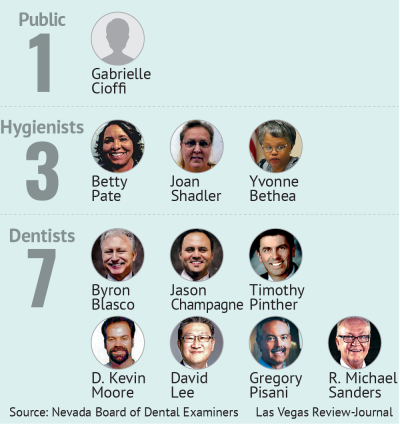
The report didn’t name the board members, and auditors refused to elaborate or provide any documentation in response to a public records request. But available records point to the board members involved.
The audit cites a board member who “did not disclose family relationship and abstain from voting during Board action to appoint” board investigative coordinator Rick Thiriot and several investigators in 2018 and 2019.
Board President Yvonne Bethea’s husband, Lorenzo, works with Thiriot and several of the investigators at the UNLV School of Dental Medicine, and she voted for the appointments, minutes show.
Thiriot and Lorenzo Bethea did not return calls and emails seeking comment. Chapman addressed the conflict at a public meeting in June, saying that Lorenzo Bethea doesn’t have any oversight of the faculty his wife voted to hire. In the future, Yvonne Bethea will disclose the relationship when UNLV issues are before the board, Chapman said.
Yvonne Bethea did not return repeated requests for comment and fled into back offices after a recent board meeting when the Review-Journal tried to talk to her and other board members.
Conflicts seeking jobs
The audit also criticized a board member for voting to pay $50 an hour to members of a panel that review complaints because he was one of the members of the panel who would get the cash. Board minutes show Pisani did not recuse himself from the Jan. 19, 2018, payment vote while serving on the panel.
Nevada Revised Statutes prohibit public officers and employees from “using their position in government for personal gain,” auditors wrote.
Chapman told top state officials at a meeting discussing the audit that the agency disputes the audit findings.
“I disagree that this audit can make that determination,” she said. “I disagree there was any purposeful violation if there was a violation.”
Auditors also took the agency to task for appointing board members as investigators after they leave the board.
“These individuals may have secured an advantage for themselves through their positions as former Board members, resulting in appointment to these paid positions following the conclusion of their Board terms,” the audit said.
Board members are paid up to $150 a day for meetings, state law says.
Former members get jobs
Former board members were paid more than half of the $32,500 in investigator compensation spent by the agency in 2018, the audit said. The rest went to other dentists and hygienists who have never served on the board.
In the past four years, about a third of the investigators were former board members, and two current investigators and Thiriot were appointed immediately after leaving the board, the report said. “The Board’s practice of appointing (investigators) immediately following Board service violates Ethics Law,” auditors wrote.
Dentists Sill, Bradley Roberts and James Kinard, oral surgeon A. Ted Twesme and hygienists Sharon Peterson and Joyce Herceg are former board members who serve as investigators, board records show. None responded to requests for comment on the issue.
In the board’s 19-page rebuttal to the audit, Yvonne Bethea said board members do not have the upper hand in getting investigator jobs, but those positions are hard to fill.
“Continuing to serve as (an investigator) once they are no longer board members is merely an extension of their community service, not the result of seeking an advantage based on that service,” she wrote.
Chapman assured Sisolak and other top Nevada officials the board takes ethics very seriously.
But board members Pisani, Bethea and R. Michael Sanders served for years without filing required statements confirming they have read state ethics laws, records obtained by the Review-Journal show. Appointees have 30 days to file the forms or face civil penalties or removal, the statements say.
Bethea’s statement was dated a few days after her 2017 appointment, but ethics director Nevarez-Goodson confirmed in an email that the board has no record of Bethea filing the statement before August.
Board members Kevin Moore and David Lee also filed the documents in August, but they were appointed last year. Sanders did not respond to repeated calls and emails seeking comment.
Contact Arthur Kane at akane@reviewjournal.com. Follow @ArthurMKane on Twitter. Kane is a member of the Review-Journal’s investigative team, focusing on reporting that holds leaders and agencies accountable and exposes wrongdoing. Support our journalism.
Vegas woman claims dental board president tried to overcharge her
ears of bad blood between the Las Vegas Dental Association and the Nevada Board of Dental Examiners has sparked audits, ethics actions and criticism of the board by top state leaders.
Many of the issues the LVDA uncovered raise legitimate questions about ethical conflicts and how money is spent, but some of the association’s accusations are impossible to prove or are demonstratively false.
LVDA Executive Director Adrian Ruiz, who opened a practice in Nevada 15 years ago, has led the fight against the dental board, which he says is controlled by the Nevada Dental Association, a rival professional group. NDA President R. Michael Sanders is a dental board member, and Ruiz said he protects his fellow association members from discipline while targeting people don’t join the NDA.
Sanders did not respond to requests for comment.
The dental board is a government agency that licenses and disciplines dentists. The LVDA and NDA are nonprofit professional groups that try to maintain the standard of care and promote dental education.
Ruiz personally has faced three investigations from the board.
“The way the board is set up here is very corrupt,” he said in a phone interview. “I never had any problems with the board in California.”
Actions and investigations ... by Las Vegas Review-Journal on Scribd
Board members did not return calls seeking comment, but in response to a 2019 audit — triggered by LVDA accusations — Board President Yvonne Bethea noted that the LVDA’s accusations have damaged the agency’s reputation.
“The audit was initially approved in response to incorrect, defamatory allegations made by various attorneys on behalf of the Las Vegas Dental Association (LVDA) during recent Board of Examiners meetings in the LVDA’s continued attempts to harass and malign the board in its attempts to avoid regulation by the Board,” she wrote.
The Review-Journal obtained a database of 52 dental malpractice lawsuits filed against dentists from 2015 to 2019, reviewed the cases and matched them against public dental board actions. The Review-Journal identified dentists who had multiple lawsuits and board actions. We interviewed more than a dozen patients of three dentists who had repeated lawsuits and/or actions before the board.
The Review-Journal gathered medical records and executive branch and legislative audits, and we reviewed board video and audio of public state meetings. We contacted attorneys who filed malpractice cases and reached out to the dentists and their attorneys. None would agree to interviews.
The Review-Journal also filed a dozen public records requests with the dental board, the Nevada attorney general’s office, the Nevada Commission on Ethics and state auditors. We also obtained key documents from confidential sources.
We attempted to interview Gov. Steve Sisolak, Attorney General Aaron Ford and dental board members. The board’s executive director refused an interview but answered some factual questions via email. The board counsel did a brief phone interview but ended it by saying we could not quote her, despite our refusal to agree to an off-the-record exchange.
The investigation took five months to complete.
Your support makes watchdog reporting like this possible. Please subscribe here.
Family connections
Ruiz’s sister Alexandrina Barin went to then-Board President Byron Blasco on April 20, 2017. Blasco recommended nearly $16,000 of dental work, including to fix cavities in four teeth that other dentists found had no cavities, according to dental records submitted with her complaint to the board.
Barin went to four other dentists for second opinions. Two of them, Bradley Strong and J. Stephen Sill, moonlight for the board as malpractice investigators. They said she did not have any decay in the four teeth identified by Blasco, dental records provided by Barin show. They also found Blasco apparently missed decay on a different tooth, records show.
Strong and Sill, who both declined comment, suggested about $4,000 of dental work, compared to Blasco’s estimate of nearly $16,000, dental records Blasco filed with the board complaint show. Blasco only gave her an estimate and never did any work.
Barin, 46, denied that she was targeting the board or had any connection to the LVDA. When the Review-Journal asked her about her brother, Ruiz, running the LVDA, she said in an email that she went to Blasco independent of her brother and the LVDA.
“I am not involved with LVDA,” she wrote in an email exchange. “I am a member of the public.”
Ruiz said Barin had not received dental care for several years, so she didn’t want to ask for help from him or her mother, who is a dentist in California. Barin works in Ruiz’s dental office and manages property in California.
“Initially, she went to Blasco on her own because she was embarrassed to see me as her brother,” Ruiz said, adding he did eventually do some dental work for Barin. “After she found out what was going on, my (other) sister told her to get a lawyer.”
The board forwarded Barin’s complaint to the Nevada attorney general’s office, which issued Barin a letter in June 2018 that said “no further action will be taken” on her complaint. The AG’s office declined comment, saying the review is “ongoing.”
Despite the connection between Barin and Ruiz, Barin’s attorney Ismail Amin alleges in his complaint on her behalf that the dental records clearly show Blasco was attempting to charge for unnecessary work and missed a cavity other dentists found.
“Ms. Barin is informed and believes that Dr. Blasco has misdiagnosed several of her dental issues and (potentially) subjected her to numerous unnecessary treatments,” Amin wrote to the board.
Board actions
Ruiz’s history with the board started in 2008, when he signed a stipulation that alleges he repeatedly prescribed unnecessary narcotics to patients.
A year later, he agreed to another board action that had allegations he allowed a dentist not licensed in Nevada and a dental assistant to perform dental work, records show.
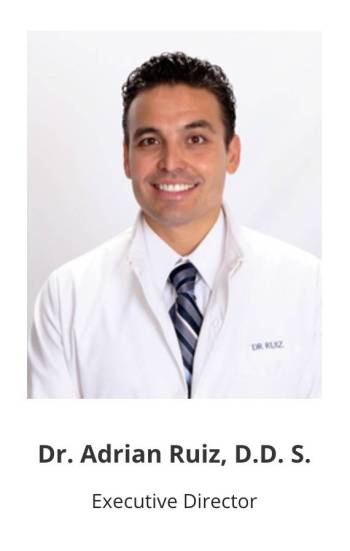
He is currently facing a third board investigation over claims related to the treatment of another patient that claims he did not accurately advise her about a problem with a root canal.
Ruiz said he was “extorted” into signing both stipulations under the threat of losing his license, and the current board action is retribution for his criticism of the board.
“I was told to sign the stipulation or they would take away my license, even though I did nothing wrong,” he said.
Ruiz said the root canal in the current investigation was done by a dentist working for him, so he wasn’t responsible for the problem.
In that investigation, Ruiz said Strong, one of the dentists Barin went to for a second opinion, had to recuse himself because he had a conflict in the investigation.
“They’re covering up their missteps, trying to do the same thing again,” he said. “They had an investigator who was a competitor of mine do the investigation.”
Strong declined comment through his receptionist.
Board general counsel Melanie Bernstein Chapman declined to discuss any dentists during a brief phone interview with the Review-Journal.
Board bias?
Prompted by LVDA complaints, auditors this year looked into whether the board protects NDA members from discipline. They found that NDA and non-NDA members are disciplined at nearly an identical rate. “It does not appear that there was preferential treatment in Board actions for dental association members,” auditors wrote.
Ruiz said the LVDA found 100 percent of the disciplined dentists in 2014 and 2015 were non-NDA members, but the association focused on rare “disciplinary” sanctions — there were only 11 of 53 board actions in those years.
The audit looked at a more recent time period.
“They finally made a change after all of the complaints to help make it a more fair process,” he said.
The LVDA also charged that four board members had conflicts after approving stipulations that required dentists, who had hired unlicensed or unqualified staff to do dental work, to donate to a nonprofit with connections to the board members.
Board votes by two of the board members, Gregory Pisani and Jason Champagne, prompted confidential letters of caution from the Nevada Commission on Ethics. The letters were later rescinded for statute of limitations reasons.
But the two other board members alleged by the LVDA to have conflicts have no leadership functions in the nonprofit.
Contact Arthur Kane at akane@reviewjournal.com. Follow @ArthurMKane on Twitter. Kane is a member of the Review-Journal’s investigative team, focusing on reporting that holds leaders and agencies accountable and exposes wrongdoing. Support our journalism.
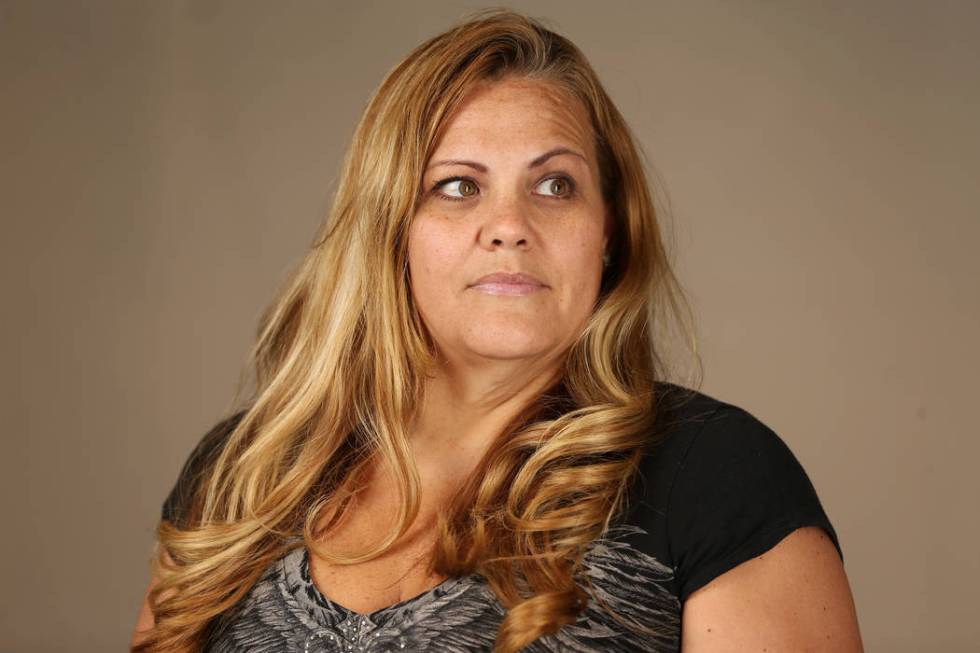
he Nevada Board of Dental Examiners violated open meeting law when it cut off Henderson resident David Harold Moore during a March 2018 public comment session — and then doubled down by filing a restraining order against him.
A Las Vegas Review-Journal investigation found several instances of the board violating open meeting law and failing to make important policy decisions in public. The action against Moore was one of those examples and prompted Gov. Steve Sisolak to direct the board to change its ways.
“I’m going to ask you to ask for help from the attorney general’s office in terms of open meeting law,” he told board general counsel Melanie Bernstein Chapman at a June meeting about the agency’s most recent audit. “They’re all supposed to have read the open meeting law.”
State law requires public agencies to have comment periods and specifically says officials can’t “restrict comments based upon viewpoint.”
Richard Karpel, executive director of the Nevada Press Association, said the public’s comments at meetings make government responsive to taxpayers’ needs. “Cutting people off based on the content of their statements, like the Dental Board has a habit of doing, is a direct assault on that law,” Karpel said.
Complaints made public
Moore said he has been in dental pain for a decade and filed complaints against three dentists in 2017 who he claimed couldn’t help alleviate his pain. When the board didn’t discipline those dentists, Moore attended a March 2018 board meeting to air his grievances.
But when Moore started mentioning the names of dentists and board members he claimed were corrupt, Sophia G. Long, a deputy attorney general assigned to the dental board, interrupted him and threatened to have him removed, a video shows. “Just because you have three minutes doesn’t mean you can say anything that you want,” she told Moore.
“It was like really incredible what they did,” Moore said. “If you want to say anything negative about a dentist during your three-minute public statement, they’ll cut you off.”
Just minutes before Moore spoke, another public speaker was cut off when she mentioned complaints against a board member and board contractor.
The Review-Journal obtained a database of 52 dental malpractice lawsuits filed against dentists from 2015 to 2019, reviewed the cases and matched them against public dental board actions. The Review-Journal identified dentists who had multiple lawsuits and board actions. We interviewed more than a dozen patients of three dentists who had repeated lawsuits and/or actions before the board.
The Review-Journal gathered medical records and executive branch and legislative audits, and we reviewed board video and audio of public state meetings. We contacted attorneys who filed malpractice cases and reached out to the dentists and their attorneys. None would agree to interviews.
The Review-Journal also filed a dozen public records requests with the dental board, the Nevada attorney general’s office, the Nevada Commission on Ethics and state auditors. We also obtained key documents from confidential sources.
We attempted to interview Gov. Steve Sisolak, Attorney General Aaron Ford and dental board members. The board’s executive director refused an interview but answered some factual questions via email. The board counsel did a brief phone interview but ended it by saying we could not quote her, despite our refusal to agree to an off-the-record exchange.
The investigation took five months to complete.
Your support makes watchdog reporting like this possible. Please subscribe here.
Board files restraining order
Weeks after Moore’s comments, the board staff filed a restraining order against him, claiming he was “aggressive, abusive, delusional, uncontrollable and persistent.”
Dental Board Restraining Or... by Las Vegas Review-Journal on Scribd
After watching the video of Moore’s interaction with the board, Justice of the Peace Karen Bennett-Haron admonished Chapman, the transcript of the April 26, 2018, court hearing shows. “The way you all handled that (public hearing) does not inspire a whole lot of confidence in what you are held out to do,” Bennett-Haron said.
Chapman argued for the restraining order: “It is just seen as harassment at this point.”
But Bennett-Haron wasn’t buying her arguments. “I’m not saying that you have to agree with everybody, but you do have to give people a forum to challenge the status quo,” she said.
“The fact that you don’t like to hear people talking about doctors is not something that is mandated by statute.”
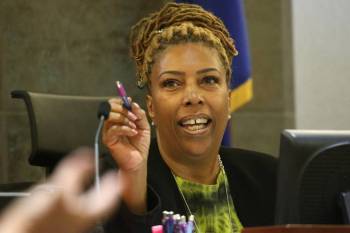
Bennett-Haron also wasn’t accepting Chapman’s claim that Moore posed a danger.
“So tell me how come you think or your board thinks its life is now in danger because he called somebody (an expletive) and says that you guys are a fraud and you don’t inspire a lot of confidence because you don’t allow public comment to go in the way that it was, quite frankly, intended under the open meetings law?” Bennett-Haron asked.
Chapman conceded that Moore hasn’t threatened anyone or had any contact with agency staff except circulating what Chapman called a “manifesto” about his travails with dentists and the board.
Moore’s unusual interests
Moore, 49, has an unusual history. He said he was fired as an adjunct professor of hospitality at UNLV for no reason. He is working on a business that will use cannabis extracts to help autistic children.
Moore assembled an 183-page document on his frustrations in finding dental treatments that could cure his decades of pain caused by teeth crowding.
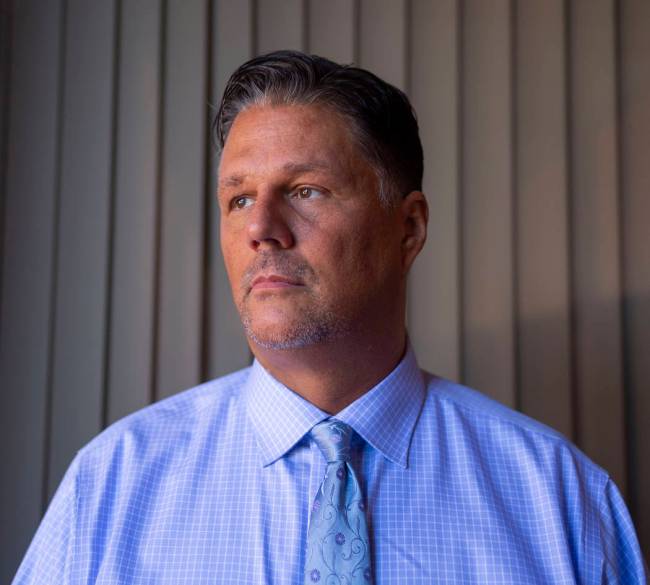
This year he posted an profanity-laced essay about religion on LinkedIn that he says is a foundation for a science fiction book he is writing. The “religious essay I wrote is a test balloon to see who would actually read and engage me on such a unique interpretation of biblical history,” he told the Review-Journal.
At the April 2018 hearing, Bennett-Haron quashed the restraining order but cautioned Moore to be more polite. “I understand you are in pain and you are mad, but, ultimately, you don’t get to yell and scream at people about it,” she said.
Moore told the Review-Journal he felt he needed to make a strong statement. “For 30 years, they’ve been preventing people from speaking,” he said. “And until I got up and forcefully tried to make my public statement … they had been getting away with it.”
Long, reached on the phone, directed questions to the attorney general’s office spokeswoman and hung up. Spokeswoman Monica Moazez did not return calls and emails seeking comment.
Chapman declined to address the Moore incident in a brief phone interview, which she ended by saying that she didn’t give the Review-Journal “permission to quote” her. The newspaper had told her that it would not agree to off-the-record interviews in coverage of the agency.
Open meetings
Bennett-Haron also declined comment, but she wasn’t the only official to question the board’s transparency.
An audit released in June 2019 recommends the board comply with the “Administrative Procedure Act to increase transparency in Board rule making and rules of practice.”
Legislation in 2017 required the board to change procedures for the review of complaints and investigations, but the agency staff adopted the change instead of doing it through a public process with the board, the audit said.
“A fundamental change in Board practices affecting the legal and private rights of licensees and private citizens was implemented without Board oversight, public disclosure or formal administrative procedures,” auditors wrote. “This reduces the transparency of Board activities, processes, and procedures.”
In response to the audit, Board President Yvonne Bethea wrote that the board will consult with the attorney general’s office to determine whether further action on the policies is necessary.
At the June meeting to discuss the audit, Chapman said there was no intent to violate transparency laws. “These are all incredible people who have been doing very incredible things for the dental community,” she said of the board.
Governor oversight
In June, Sisolak said he was unhappy with the board’s lack of transparency and the direction of the agency.
Chapman told the governor that Long — the official who cut off Moore — is helping with the board’s transparency training. “I have personally sat with them about the open meeting law, Ms. Long has sat with them,” she said. “I don’t believe there have been open meeting law violations.”
State law allows the governor to remove board members for neglect of duty, incompetence and dishonorable or unprofessional conduct. The terms of Bethea and two other board members, R. Michael Sanders and Timothy T. Pinther, expire at the end of October.
Sisolak told Chapman he would confer with his legal counsel to determine where he “can go from here with this.”
Sisolak’s staff did not respond to repeated requests for interviews with the governor about the dental board.
Contact Arthur Kane at akane@reviewjournal.com. Follow @ArthurMKane on Twitter. Kane is a member of the Review-Journal’s investigative team, focusing on reporting that holds leaders and agencies accountable and exposes wrongdoing. Support our journalism.
Henderson man blasts the state’s agency that regulates dentists
How to check your dentist’s background
How to file a complaint against a Nevada dentist
Contact Arthur Kane at akane@reviewjournal.com. Follow @ArthurMKane on Twitter. Kane is a member of the Review-Journal’s investigative team, focusing on reporting that holds leaders and agencies accountable and exposes wrongdoing. Support our journalism.




